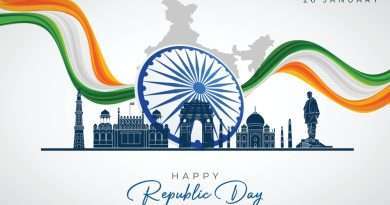A Journey Through India’s Architectural and Artistic Heritage
India, a land of diversity and enchanting mysteries, boasts a cultural heritage that spans several millennia. The country’s rich cultural tapestry weaves together a mesmerizing fusion of traditions, customs, art forms, and beliefs, reflecting the influences of various dynasties, religions, and civilizations that have thrived on this ancient land. This article embarks on a journey through time to explore the fascinating depth and breadth of India’s cultural legacy.
INDIAN VISA FOR MACEDONIAN CITIZENS
The Ancient Vedic Era
India’s cultural history can be traced back to the ancient Vedic era, around 1500 BCE. The Vedas, sacred texts of Hinduism, serve as the foundation of Indian spirituality and philosophy. They encapsulate the wisdom and insights of sages and scholars who explored the mysteries of life, the universe, and the self. The Vedic period laid the groundwork for several rituals, hymns, and spiritual practices that continue to resonate in modern India.
Flourishing Dynastic Empires
Over the centuries, India witnessed the rise and fall of numerous dynastic empires, each leaving an indelible mark on the country’s cultural fabric. The Mauryas, Guptas, Cholas, and Mughals are just a few among the many powerful empires that shaped India’s cultural landscape. These empires nurtured art, architecture, and literature, resulting in the construction of awe-inspiring monuments, intricate temples, and timeless literary works that stand as architectural marvels even today. The emergence of classical arts in India marks a significant phase in the country’s cultural development. Indian classical dance forms like Bharatanatyam, Kathak, Odissi, Kathakali, Manipuri, and others, each with its distinct style and storytelling technique, became a medium of preserving myths, legends, and religious narratives. Simultaneously, Indian classical music evolved, with two primary schools – Hindustani and Carnatic – captivating audiences with intricate melodies and profound emotions.
The Influence of Religions
India has been the birthplace of major world religions such as Hinduism, Buddhism, Jainism, and Sikhism. The coexistence of these diverse faiths has played a significant role in shaping India’s cultural ethos. Ancient Buddhist stupas, Jain temples, Hindu shrines, and Sikh gurdwaras dot the landscape, showcasing the religious harmony that has thrived throughout history.
Colorful Festivals and Celebrations
India is renowned for its vibrant and kaleidoscopic festivals, which reflect the country’s cultural exuberance. From Diwali, the festival of lights, to Holi, the festival of colors, and Eid-ul-Fitr, the festival marking the end of Ramadan, every celebration is an opportunity for people to come together, exchange greetings, and revel in the joy of unity. Each festival has its unique customs, rituals, and regional variations, making the cultural experience even more diverse.
Classical Arts and Performing Traditions
India’s classical arts, such as Bharatanatyam, Kathak, Odissi, and Kuchipudi, trace their roots back to ancient times. These art forms are characterized by grace, precision, and storytelling, and they are steeped in tradition, with techniques passed down through generations. Indian classical music, with its intricate ragas and talas, is another cultural gem that continues to captivate audiences worldwide.
INDIAN VISA FOR ROMANIAN CITIZENS
Culinary Heritage
India’s culinary heritage is an integral part of its cultural identity. Each region boasts a distinct cuisine with a plethora of flavors, aromas, and cooking techniques. From the fiery curries of the South to the delectable kebabs of the North, and the rich sweets of the East to the savory street foods of the West, Indian cuisine is a culinary adventure waiting to be explored. The culinary heritage of India is a delectable fusion of flavors, aromas, and cooking techniques. From the succulent kebabs of the Mughlai cuisine to the spicy delicacies of South India and the delectable street food found in every nook and corner, India’s gastronomic offerings cater to every palate. The traditional culinary practices passed down through generations, are an integral part of Indian culture, and the country’s cuisine continues to be celebrated globally.
Traditional Handicrafts and Textiles
India’s craftsmanship is renowned for its intricacy and craftsmanship. Traditional artisans skillfully create exquisite handicrafts, including intricate jewelry, intricate pottery, delicate textiles, and vibrant handloom fabrics. Each region showcases its unique artistry, reflecting the country’s cultural diversity and rich artistic legacy.
Modern Cultural Expressions
While India remains rooted in its traditions, it is also a vibrant hub of modern cultural expressions. Bollywood, India’s film industry, churns out a plethora of movies each year, blending entertainment, music, and dance. Contemporary artists and writers delve into various themes, expressing their perspectives on social issues, life, and love. Indian literature continues to produce thought-provoking works, reflecting the dynamic society.
Conclusion
India’s rich cultural tapestry is a magnificent amalgamation of ancient wisdom, historical grandeur, religious diversity, artistic brilliance, and culinary delights. This kaleidoscope of traditions and customs has been nurtured and preserved over millennia, fostering a sense of unity among India’s people despite their diversity. As travelers delve into the country’s cultural riches, they embark on a journey through time, where the past and present converge, leaving an indelible impression of the enchanting mosaic that is India.
Also read: Exploring Lucrative Business Opportunities in Canada



